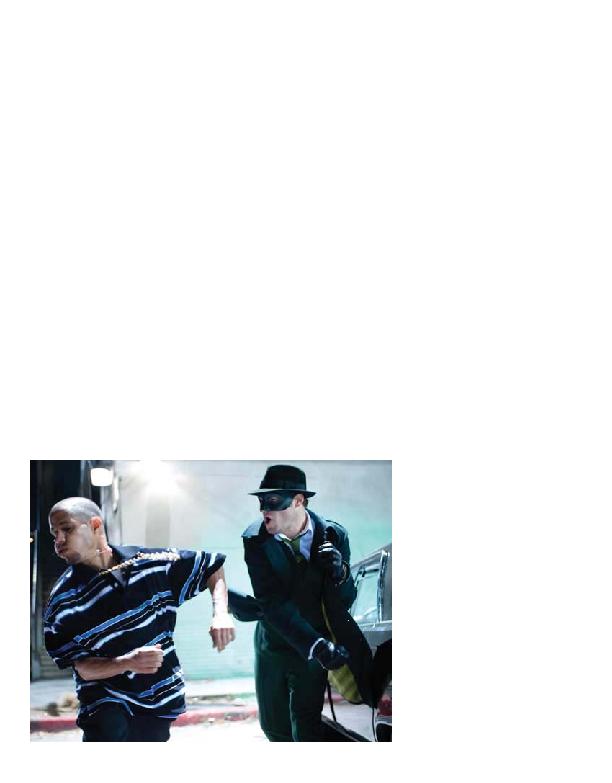
in 2007 when producers Neal Moritz and Ori
Marmur came to them with another project.
They were considering a big-screen version of
the cult radio/serial character the Green Hor-
net and wanted to know if Rogen and Gold-
berg were interested in taking a stab at the
script. "The initial concept was a very expen-
sive, creeping-up-to-$100-million action
movie," Goldberg says. "And we said yes."
movie that revolved around the relationship
between a hero and a sidekick. "That's what
we'd always been trying to write and we had
a hard time cracking it," Rogen says. "As
soon as Neal said they wanted to make a big-
screen version of `The Green Hornet,' we told
him we really wanted to focus on the rela-
tionship between Kato and the Green Hor-
net. We wanted it to be unconventional and
journey of a guy going from the last guy you
would expect as a superhero to an actual
hero." While developing this idea, they re-
alized Rogen would be perfect for the lead.
The writer-actor laughs and says, "If there's
one guy who's not a hero, it's me."
Striker. Newspaper publisher Britt Reid would
fight criminal syndicates each night as the
masked hero, aided by his martial-arts expert,
valet and driver, Kato. The show was quickly
adapted into a pair of movie serials that ran at
the start of World War II and were later turned
into a 1966 television series that starred a
then-unknown Bruce Lee as Kato.
of the Green Hornet as a family legacy, the
same identity taken on by generation after
generation of vigilante crime fighters (as a fun
side note: In Striker's original '30s-era stories,
the Hornet is the grandnephew of the Lone
Ranger, another Striker creation). The end re-
sult was that Goldberg and Rogen had a
plethora of material to work with. "It's not like
we were the most rabid Green Hornet fans,"
Goldberg admits, "but we both watched the
show, we read some of the comics. We really
liked the Green Hornet."
they could in the film, they also made the de-
and